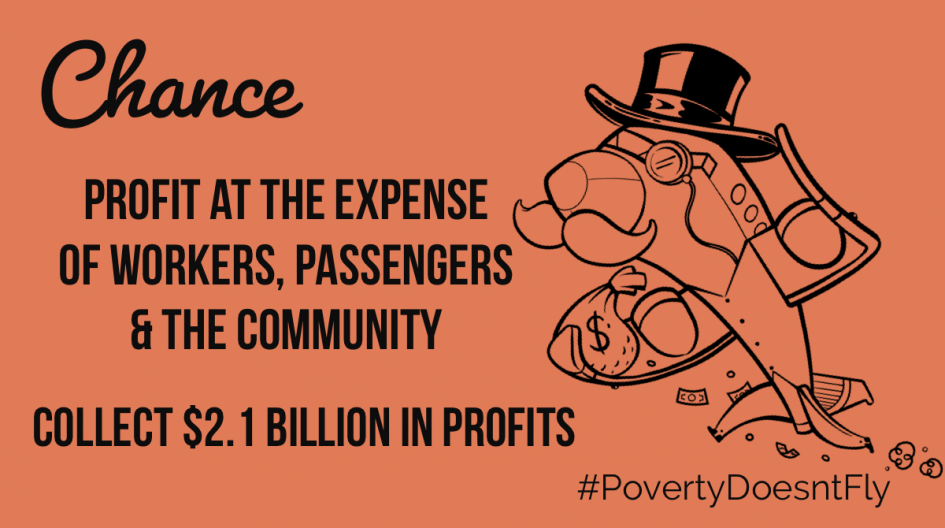Many Americans see air travel around the holidays as a necessary evil. We brave the stress of crowds, delays, high ticket prices, high bag fees, and hope we don’t have to change our plans and pay even higher change fees. We sit in uncomfortably small airplane seats and try to use tiny airplane bathrooms. Most of us believe it is all worthwhile to spend special time with the people we care about, but still wish that it could be different. In fact, the most recent American Customer Service Index found that airline customer satisfaction fell in 2018 even as more people traveled by air. With a score of 67 out of 100, United Airlines was by far the lowest-ranking traditional air carrier on passenger satisfaction ratings, doing worse than every other US airline except for ultra-low-cost carriers Frontier and Spirit.
What many air travelers don’t know is that at the same time that passengers are struggling, so are many of the people working in the airport around them. Airport jobs used to be good union jobs, but airlines have increasingly outsourced critical service work to contractors or subsidiaries. In 2017, United Airlines made $2.1 billion in profit, and their CEO was paid over $4,500 per hour. This is more than 500 times the posted starting wage for some jobs at their subsidiary United Ground Express.
Now, many airport workers – the people cleaning the terminals and airplanes, assisting passengers who need wheelchair services, handling our baggage, performing security functions – are stuck working multiple jobs just to pay the bills. Such low wages drive high employee turnover, which in turn degrades quality and security.
What makes such poverty-fueling jobs even more outrageous is that while taking the low road on wages and working conditions, airlines are simultaneously getting taxpayers to subsidize their fuel bill. In United Airlines’ hub states New Jersey, Colorado, California, Illinois, and Virginia, airlines get special tax breaks on jet fuel and other costs worth an estimated $480 million. This is money that could otherwise be going to improve conditions at the airport; projects that would make life better for everybody at the airport, like better infrastructure, improved public transit options, emergency preparedness training, or programs to protect airport workers from health risks. Yet United Airlines is fighting to keep their special tax exemption in New Jersey rather than have those funds directed toward airport projects that benefit the community, even as regular New Jersey residents see their biggest gas tax increase in history.
Our airport infrastructure was built largely with public dollars, meant to benefit everyone. But airlines like United are trying to extract as much profit from the system as possible, to the detriment of passengers, workers, and taxpayers.
